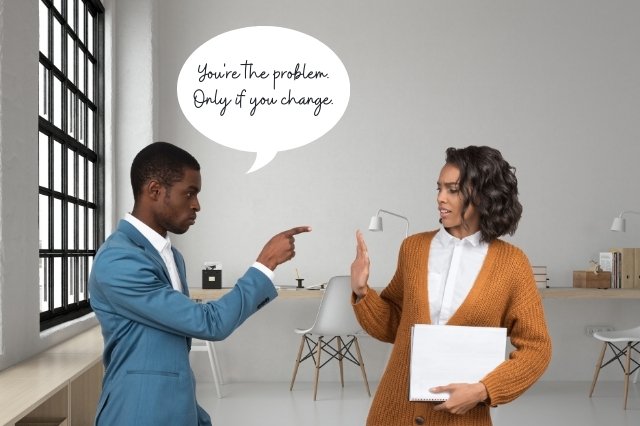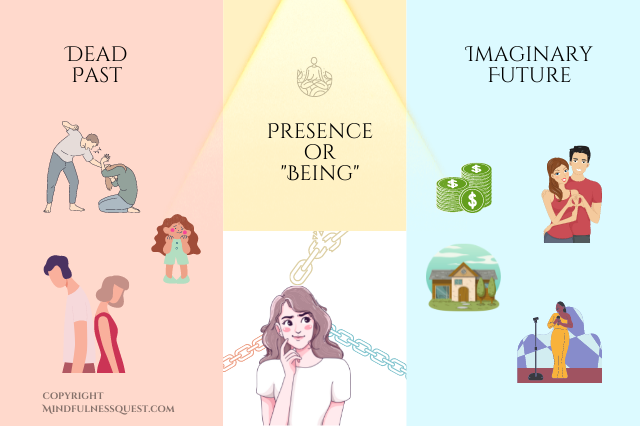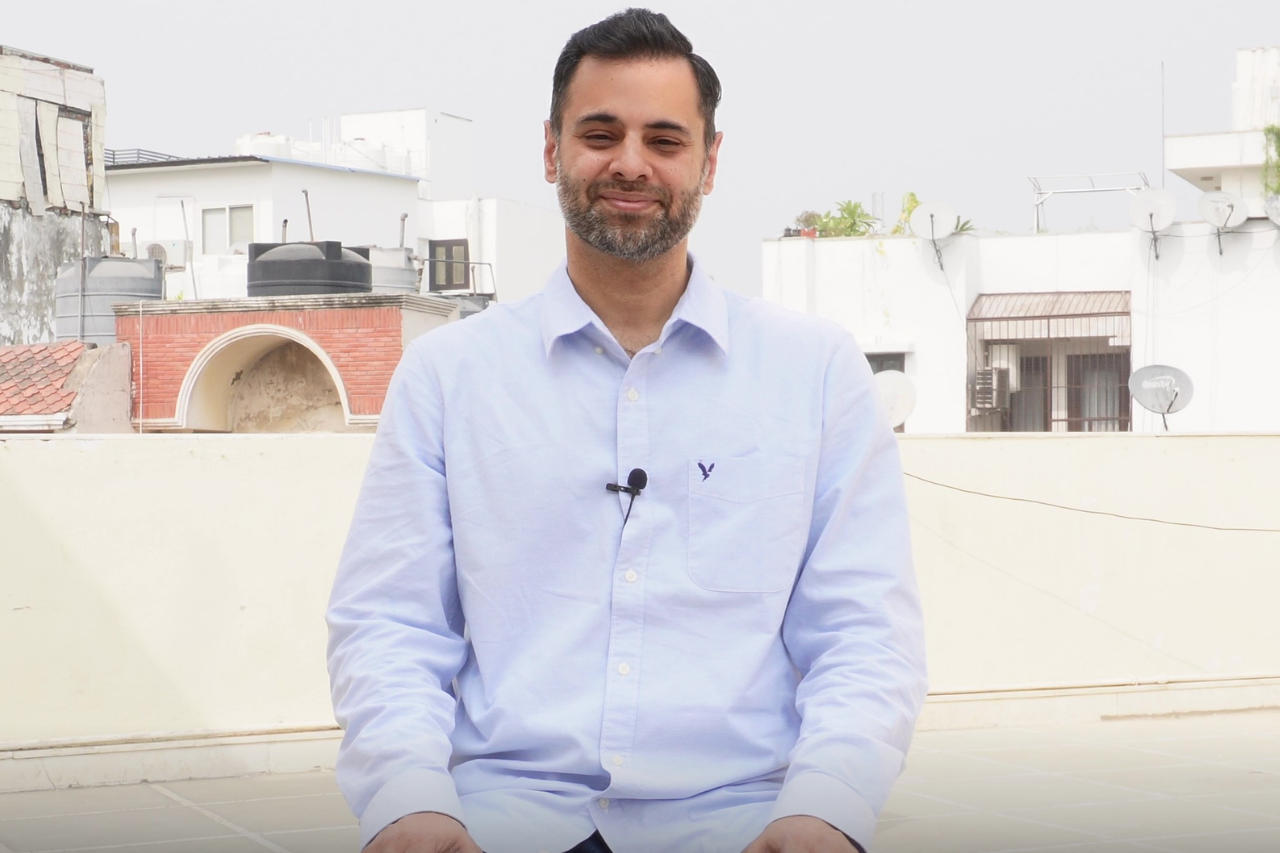The ego is a troubling monster. It spontaneously arises as anger and finds a target to hit. It wants to pinpoint and blame someone or something. After doing all the drama and experiencing emotional upheaval, it goes back into hiding. The ego is sneaky and covert, but is it pure evil? Let’s explore.
Ego Hides by Diverting Attention to “Other”
The ego is unwilling to acknowledge its own existence. It survives by diverting attention to other things, people, and situations.
It poses questions like: Why are “they” like that? Why do they behave in this or that way? Why don’t they learn? Why do they purposely annoy me? It’s always me versus them.
The above questions are a part of the basic diversion mechanism that the ego uses to divert attention from what’s going on within. We rarely question, “why did I react like that.” The ego finds an object and gets fixated, “this person is responsible for my unhappiness”. Only if he or she changes everything would be okay.
Again, all of this is just a ploy. The problem is that the rise of the ego-identified thinking mind is so sudden that it highjacks the rational part of the brain. We experience overpowering emotions and feel the need to react to let go of the build-up stress.
And sometimes, despite our best understanding, a reaction happens. But when such behavior becomes habitual and normalized, it causes a lot of pain and suffering.
The ego rises rapidly, spews the venom, and goes back into hiding. It starts doing that frequently when the awareness is low. How dare they treat me like that? What have I done to deserve such treatment? Why don’t they change?
The ego wants others to change, but it’s unwilling to look at what lurks in the shadows deep within our psyche.
Even when the other person is sitting quietly, a dialogue continues in the ego-mind. What kind of clothes is he/she wearing? Look at his/her dressing sense. Look how much hair gel he has on his head? He/she looks ugly. She/he needs to lose some weight. And it goes on like this changing the objects of experience but with the same underlying structure.
It is all a diversion. The moment you start looking within, the ego-mind gets scared. So it tells you this is all useless. It doesn’t work in practical life situations. You should do yoga instead. Or better yet, let’s check how many likes you got on Instagram. Or even better, let’s check that viral video where Will Smith slaps a comedian at the Oscars. Diversion!
We’re unwilling to look at our own behaviors, but we’re quick to pinpoint others. Now there’re some cases where people deliberately try to provoke, but such cases are rare.
In the majority of cases, people don’t do that but our anxious mind thinks that the world is plotting against us. Therefore, it creates a barrier and uses diversion (eating, smoking, drinking, or numbing yourself by scrolling the infinite pit of social media feeds) to avoid uncomfortable feelings. If you know yourself well, if you’re aware of your inner world, it’s unlikely that you’ll react.

Having a reaction “in the moment” is not the problem. The problem is when the ego creates thoughts around it.
The diversion can happen in two ways. First, the grandiose way:
- “I know I reacted, but he/she deserved it.”
- “He/she had it coming.”
- “Only if he/she hadn’t said that I would not have reacted.”
- “God chose me to deliver him/her his karma.”
- “I reacted because I was having a bad day so it’s not my fault.”
- “Do you realize how much job pressure I have? I showed them their right place. Don’t they know who I am?”
- “You give me stress.”
Second, the victim mentality diversion:
- “I am a horrible person.”
- “That’s why I am lonely, and people don’t like me.”
- “Only if I were a calmer person, I would have had a lot of friends.”
- “I react because my childhood was abusive.
- “I do so much for others, but what do I get in return.”
- “Back in the olden days, people were so nice.”
- “I was never such a horrible person, but he/she made me like this.”
The Ego Like to Choose; The Awareness Is Choiceless
The ego loves to choose. It creates division with the ideas of good and bad, moral and immoral, virtue and vice, and so on. This division is the root of all conflicts. There’s a deep-rooted belief that we’re incomplete and unworthy; hence we need to accomplish “something” to be “somebody.”
In this unconscious pursuit of “becoming” better than we are right now, we chase after ideologies, beliefs, and dogmas. We feel that we are changing things by “doing” something, but what essentially happens is that we end up creating more unconscious identifications. Instead of freeing ourselves from the thinking ego-mind, we get bound more.
I’m a Christian, Hindu, or Muslim; therefore, I must learn about my respective religions in order to become wise. I’m a republican or democrat; consequently, I must “do” something to change the political landscape. I’m an activist or a social worker; therefore, I must “do” something to make people understand how ignorant they are. These are all identifications in mind. And they’ve got nothing to do with who we really are.
The emphasis is on “doing,” which is governed by choice, rather than “being,” which is choiceless. The choiceless awareness is freedom. I do not imply that you shouldn’t take action. Identifications with beliefs are not the problem.
There’s no problem in working towards an idea or a cause or a goal, but know that the outcome of our doing is not in our control. The ego wants a certain outcome based on certain choices it makes, and it likes to work with that belief, which creates suffering.
You run after Gurus, life coaches, and spiritual teachers, hoping that they will help you attain peace of mind, but you get more entangled in the web of thinking mind. This compulsive preoccupation with living in the dead past or an imaginary future is the source of all misery. The more you think about it, the more it strengthens the ego.

The problem is grasping or binding yourself to an ideology or belief and then forcing it on others based on your choice of outcome. That’s why we see so many conflicts in interpersonal relationships. When this principle is understood, you work for the sheer joy of it, and not for your preferred outcome or any external validation. This principle is the core of Karma Yoga philosophy (the selfless action).
We have turned the world into a marketplace and commodified every aspect of life and living, including relationships. “What can you offer me? I’ll be with you only when you do what I like.” Instead of being present for each other, we make demands and base all of our relationships on that. It is bound to create suffering.
We expect perfection from others, but we’re unwilling to look at ourselves. That’s because working on oneself involves going deep within and facing the monster that sits there. We don’t like the image we see within, and therefore, we keep chasing after solutions outwardly.
When you’re present for your loved one – simply being present without any expectations, without telling them what to “do” or “not do” – it is the purest love because the awareness is simply witnessing without getting entangled in egoic choices. You’re not demanding an outcome. You’re simply there for them.
It’s Your Responsibility to Make “Me” Feel Happy
Some people are loud and abrasive. That ego seeks the longing to be heard. The problem is that it’s unwilling to look at itself and what it is that it deeply fears. Rather it wants attention by creating a scene or ruckus.
It wants fulfillment but doesn’t know how to get it. Some people are known for their notoriety. It’s an unconscious way to live life because the ego is constantly chasing after ideas that are never going to give what it really wants.
Deep down, we desire to become spiritually complete or whole. That’s where the word “holy” comes from. Not realizing that we are already what we seek to become, we chase after things and people to become whole. The need for attention and validation keeps the ego trapped in its own misery.
Rather than becoming aware and peaceful, we become restless and anxious. We build unrealistic expectations from people, and when they’re not fulfilled, we create resentment. That is how conflicts happen and relationships break, but we don’t allow ourselves to sit back and look at what is going on within.
We remain obsessed with “fixing” the outer world. We take responsibility for other people’s emotions but don’t want to pay any attention to our own. In fact, we want other people to take responsibility for our emotional state.
“It’s your job to make me feel better because I’m unwilling to take a peek inside myself.” People don’t say it out loud, but that’s what’s happening in the world. We try to control people and manipulate them thinking it will give us happiness.
Is the Ego evil?
The above article is a sample from my latest book – The End of “Me & My Story.” You can get it here on Amazon.

